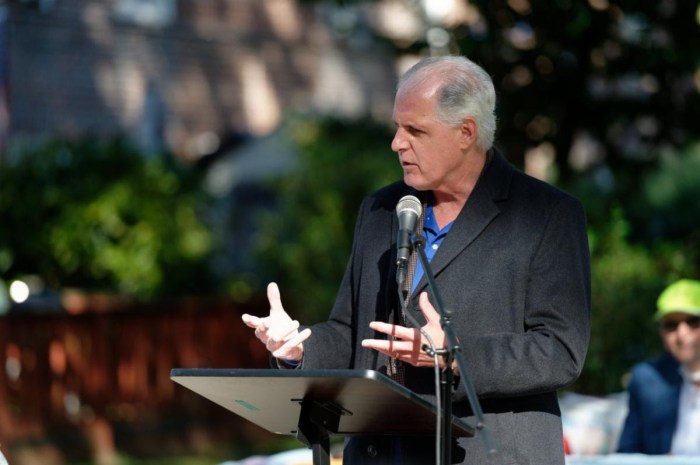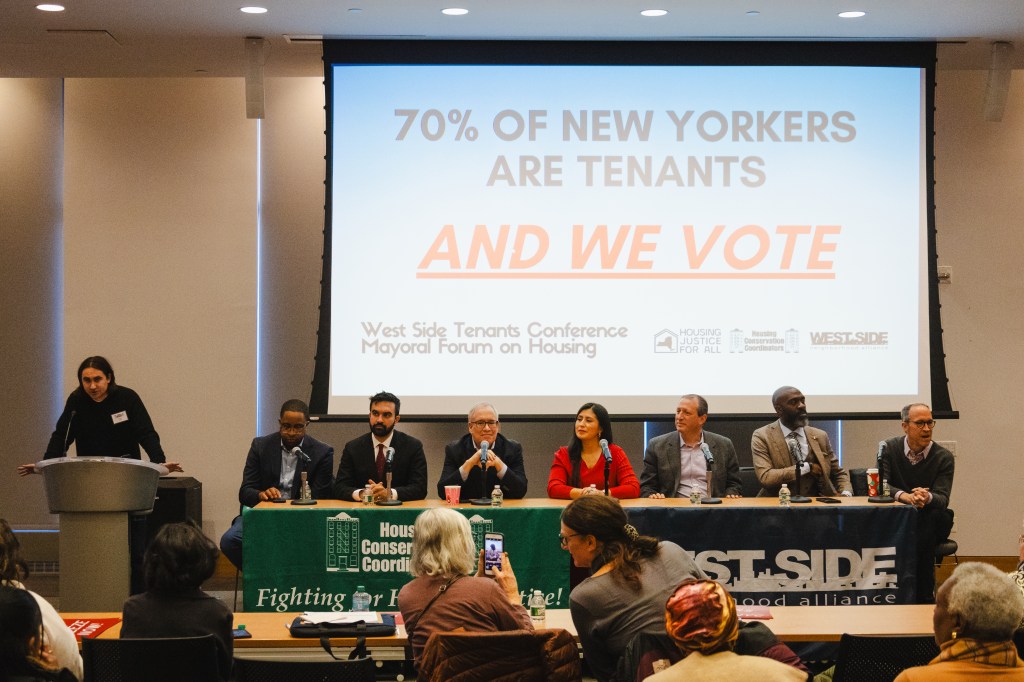By Alex Davidson
Queens’ only member on the New York State Board of Regents said the formula for allocating education funds to borough students became so complicated during the past few decades that legislators in Albany only loosely followed the guidelines during the last three fiscal years.
Instead, Geraldine Chapey said in an interview Tuesday, the state Legislature decided to increase education funding in record amounts for three consecutive legislative sessions, ending last year. At the same time legislators started to review suggestions for changing the formula, which state courts determined this summer shortchanged borough and city students and schools.
“We (the Regents) have been working on simplifying the formula as a proposal,” said Chapey, also a professor at the City University of New York who lives in Belle Harbor. “It was evident to us that the state formula was complex and complicated.”
The New York State Board of Regents is a 16-member body responsible for the general supervision of all educational activities within the state, presiding over the New York State Education Department and the University of the State of New York — which consists of all elementary, secondary and post-secondary educational institutions such as libraries and museums.
The board’s members, 12 of whom are chosen to represent the state’s 12 judicial districts and four of whom are chosen at large, are elected by the state Legislature to serve five-year terms.
Chapey, along with the other 15 members of the board, announced Dec. 13 an alternative to the state’s current education formula. They called for the infusion of $5.98 billion during the next seven years to be targeted at high-need districts across the state to give them a better chance at providing their students with a sound, basic education required by the state’s constitution.
Critics of the plan, such as the Campaign for Fiscal Equity’s Executive Director Michael Rebell, said the Regents’ plan would take too long and not reach students currently enrolled in borough and city schools. He instead recommended an immediate $2 billion “down payment” to be earmarked for education in the state’s upcoming budget for fiscal year 2005.
A discussion of how to determine the cost to educate individual students in New York state arose following the 4-1 decision by the New York State Court of Appeals in June that found schools in the borough and the rest of the city were not getting enough money to educate their students.
Ending a 10-year battle against the state brought by the Campaign for Fiscal Equity, a coalition of parents, attorneys and city council members, Chief Judge Judith Kaye said New York state violated its own constitution by considering an eighth-grade education the fulfillment of its obligation for a sound, basic education in New York City.
Since that ruling, several governmental and private organizations have put forth proposals to reform the state’s education formula. Republican Gov. George Pataki appointed a panel to assess various proposals and make a final recommendation on the cost of a sound, basic education by the court-ordered deadline of this July.
Chapey stood by the Regent’s proposal that focuses on increasing education funds during a period of seven years. She said the board has been studying how to reform the state’s education formula for many years and not in response to the Campaign for Fiscal Equity lawsuit.
“You cannot do this overnight,” said Chapey, who has served on the state Board of Regents since 1998 and will continue through 2008. “If you do, you are going to have such upset in the system that you are going to lose the equilibrium.”
Chapey has served as an administrator and a teacher in borough and city schools. She received her doctorate from Fordham University and was also a member and past president of Community School Board 27, which includes Richmond Hill, Woodhaven, Ozone Park, South Ozone Park, Howard Beach and the Rockaway Peninsula.
The veteran educator said she enjoys both teaching and administration. She said her past and present experience at all levels is what she brings to the table with the board.
“This is my vocation and my avocation,” Chapey said. “I just love education.”
She also stressed the community’s involvement in discussing and implementing changes to how the state doles out its education funds. She said the Board of Regents seeks advice from parents, taxpayers and educators.
“We are not up there in any ivory tower,” Chapey said. “I feel we need to be responsive to all parts of the community.”
Reach reporter Alex Davidson by e-mail at news@timesledger.com or by calling 718-229-0300, Ext. 156.
































